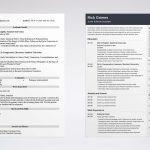A vital part of the process of adequately preparing for SSC interviews is to be familiar with the types of SSC CGL interview questions that are frequently asked along with the suitable answers to these questions. In this section, Studycopter will provide you with a basic overview of the various categories of SSC CGL interview questions that are prevalent in SSC interviews as well as the appropriate answers that will help you win over your interviewers.
To start off, it is important to note that generally, there is a routine flow to these interviews, where the panel will first judge your confidence level as you enter the room. Overconfidence would not be appreciated and would result in the interviewers trying to throw you a little off balance. With an appreciable level of confidence, greet the panel before you. Sit only when they have asked you to take a seat.
That being said, let’s now browse through the most commonly / frequently asked SSC CGL interview questions.
On the basis of what they relate to, the SSC CGL interview questions can generally be classified into the following categories:-
• Family background
• National policies / Issues of the nation / Economic issues, etc.
• Subjects of your interest
• General Awareness
• Issues relating to native state/hometown/work town
• Choice of career
• Arbitrary topic the panel feels is relevant to your candidature
Now let’s talk about every category in detail:-
1. FAMILY BACKGROUND
These are the questions that are generally used for commencing the interview. The panel will begin by asking about your father/mother/family, etc. “Where your father works / Is anyone in your family a working member of the bank / Has anyone in your family ever worked with a bank?”
Your educational qualification, your parents’ educational qualification, your hometown, etc – These are the kind of questions that will generally begin your interview. From here will stem the next round of questions. Based on what you answer, they will pick up a topic ranging from your favorite subject to issues of national importance, anything in the interim.
2. NATIONAL POLICIES / ISSUES OF THE NATION / ECONOMIC ISSUES ,ETC
Now questions such as these will range widely over the current scenario of the situations. For example, they may begin with “Can you mention any news which you found in the newspapers significant recently?” Such questions will test your general awareness, and your depth of involvement with the affairs of the economy / political situation, etc.
It is always advisable to be thorough with current affairs, issues currently pertaining to the economy. You should not pick up a topic that you read in that day’s newspaper! Rather, pick up something about which you have been reading for some time now (say, 2 to 3 weeks).
Pick up a topic over which you have material enough to speak about. Remember, the panel wants to know your thought process, and not how much you know. Quality of your thought procedure, and not the quantity of matter, actually matters!
Needless to say, these questions are the most hectic to handle, since small inaccuracies about your facts can be caught by the panel.
This round of questions proceeds with the panel asking “what do you think about the take of XYZ ministry on this issue / what do you think could actually be done / how can you profitably deviate from where the policy is headed to / what do you understand by XYZ policy of ABC ministry on this issue?”
3. SUBJECTS OF YOUR INTEREST
These are nearly always questioned! The panel asks in the beginning/middle of your interview your favorite subjects and then starts a round on them.
For example, if you mentioned Chemistry / Biotechnology, they may pelt you on nuclear proliferation, etc.
If you mentioned policy related subjects like Economics / Political Science, etc. they can start on anything related to the current financial position of the economy. They can ask you your stand on “Arun Jaitley’s recent take on financial inclusion for the economy / PM Modi’s most recent agenda to bring banking services to easy access via mobile phones,…”. In other words, any current topic related to your favorite subjects.
4. GENERAL AWARENESS
This category of questions is broad. Here, possibly any kind of questions can be asked – policy issues, recent turmoil in the country, sports and related issues, education, … The list goes on.
5. ISSUES RELATING TO NATIVE STATE / HOMETOWN / WORK TOWN
This is among the favorites, many a time. Questions on crucial or controversial policies of your native state, or your hometown, are very common.
Questions may range from “who is the winner of the by-polls in your state / which party won (by how many seats)?” to “How do you account for the high literacy rate in Kerala which is your native state?”
Awareness regarding such topics is very important. You should be well aware of your state’s ruling party, their policies, unfulfilled controversial policies, etc. In other words, a well-rounded knowledge of your state, hometown/place of work is essential.
6. CHOICE OF CAREER
This may often come up as a question. It depends on your own position. For example, if you are changing your career from the private sector to public sector, or if none of your family has ever been in the banking sector. The question may come up in any form “Why are you choosing the public sector? / Where do you see yourself 5 years down the line? / How did you decide on choosing this field to work? / What attracts you most about this sector?”
7. ANY ARBITRARY TOPIC THE PANEL FEELS IS RELEVANT TO YOUR CANDIDATURE
Well, there is no presumption/pattern/conjecture about this one people! It could actually be anything. If defense ministry has been in the news for their contracts with Italian armaments firms, then this is what they may throw at you! For that bit, you have to go easy on yourself. After all, no one can have perfect information! Because perfect information is only idealism!
Now that we more or less know the pattern/type of questions asked, let’s dwell on the best possible ways to answer these questions. The most important thing always to be kept in mind is brevity and precision. You must take special care to not let your answers wander beyond what is being asked.
Here are a few tips for all common question types, irrespective of the category:
•Receive questions with a smile. Never let it reflect that a particular question displeases you or makes you nervous. Always be calm.
•Key to answer: Precision + Brevity
•Do not let a question bring down your morale. Believe in yourself; believe that you will be able to answer all questions.
•Listen carefully to the question; do not start speaking even before the interviewer has completed the question.
•Do not give wrong answers/guess answers. When you do not know a question, politely tell them that “This does not seem to strike a chord at the moment / I am not aware of such detailed arguments (facts) on this topic / I have not yet read (or, heard) about this topic, kindly excuse my understanding of it”
Having said that, now let us get down to cracking the most common prototypes. Before you start answering a question, take a moment and put yourself in the panel’s feet. Think about what you would like to hear from a candidate sitting in front of you. With what aim would you ask such a question? What would you want to judge the candidate on with that question? This always helps give precision and direction to your answer.
Questions on Family Background
As already stated, such questions are the beginning of interviews, generally to make the candidate feel at ease with the environment. Answer with a light smile and keep it short.
When asked about the entire family, like “where is your family? / How many siblings do you have? / What are they doing? / etc.”, you must answer in a maximum of 2 to 3 sentences. You should not prolong such answers as the basic aim of the panel is to get to know you in a limited span of time. They do not want long stories!
Questions on National, Economic Policies
For such questions, the beginnings will be left as a choice to you. In other words, they will ask you about the most recent happenings in the country, etc. and based on the answer you give, they will build on the policies/issue related to it. Sometimes they may pick up something of their own choice, but typically some choice will be left to you.
To play safe, you should be prepared with 2-3 topics from recent happenings of the country, such as elections, political turmoil, controversial issues relating to the economy, spanning of new and reviving policies like the financial inclusion scheme, the minimum of Rs.1000 pension scheme, etc.
When you begin answering these questions, you should have a format in mind, a vague order in which you are going to present your thoughts. You can always ask them to give you 30 seconds to put your thoughts together. This is granted by most reasonable panels. However, if that does not happen, do not be flustered. You can always tell them things as they enter your mind, but at a manageable pace where your points are duly noted by the panel.
However, do not let go of your brevity and precision of answering.
Questions on Subject of your interest
For this section too, have 4-5 popular topics prepared for the interview. For example, if Economics is your favorite subject, then you must be well-versed with the recent policy takes of the economy, their shaping, whos-who about them, and also a small bit of your own take on these. Always remember, they want to know what your thinking ability and direction is. So having your own opinion in mind is very important.
Most of their questions will be like “What is the GDP of India? Why do you think it is facing a displeasing trend? / What do you think could be the reasons for this growth pattern? / What do you understand by demographic transition? / What does Amartya Sen have to say about Kuznets’s Inverted-U hypothesis? Is it applicable anywhere in the world?”
As you can see, the majority of the questions will be about your perspective / your take on the theories, experiments, etc.
Questions on Choice of Career
This is typical “Why banking / why govt. / why are you changing your professional stream?”. For each, you must show your dedication towards the govt. service and how it has its own benefits. You could tell how you as a citizen would like to serve your country by working for the people. Enumerate how the govt. services care so much about their employees, a sense of care and concern that is not visible in the private sector today.
As to why you want to change your stream, you can always say “I feel my current job has reached the maximum of its learning curve, and I want to do something new now.”
Arbitrary Questions
These are like the freelancers. If there is time left, the panel may venture one or two such questions. Mostly, they are not ones that you need to be prepared for. They may be about your schooling, education, your hobbies, what you did as a child, your interests, etc. Casually, they may be coupled with a few general awareness questions. You need to be relaxed throughout, that’s all, and answer to-the-point!


